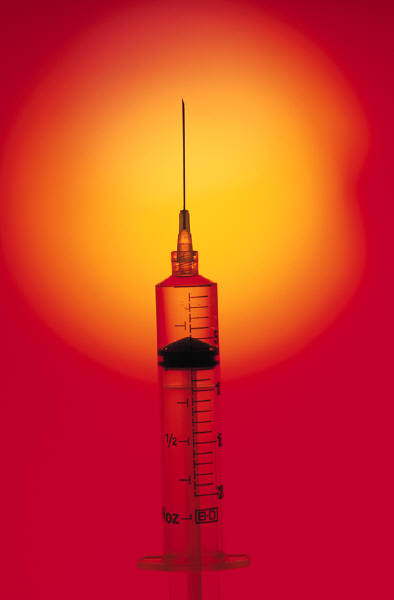 While performing her duties as a Bellevue Hospital nurse, Helen Ornstein was stuck with a syringe that had been left by a medical intern in a patient's hospital bed. The needle was filled with blood from one of the hospital's AIDS patients.
While performing her duties as a Bellevue Hospital nurse, Helen Ornstein was stuck with a syringe that had been left by a medical intern in a patient's hospital bed. The needle was filled with blood from one of the hospital's AIDS patients.
Ornstein was immediately treated with anti-viral medications to reduce her chance of contracting HIV and, for two months, experienced neuropathy in her hands and feet and nausea as a side effect. She also underwent HIV testing every three months for a period of two years; all with negative results.
A year and a half after the incident occurred, Ornstein filed suit claiming "negligent infliction of emotional distress" against the New York City Health and Hospitals Corporation (NYCHHC) and the intern who had left the blood-filled needle on the hospital bed. (She alleged that as a result of the experience, she was taking anti-depressants, underwent psychiatric therapy, changed her profession, suffered a sleep disorder, and was treated for post-traumatic stress disorder.)
NYCHHC argued that anyone who tests negative for HIV six months after exposure is unable to make a viable "emotional distress" claim because, after that window period, "continuing emotional distress becomes unreasonable and, hence, uncompensable." The New York County Supreme Court disagreed and allowed the case to proceed to trial.
On appeal, in a three-to-two decision, the Appellate Division, First Department, reversed. It believed that a six-month period applied and precluded Ornstein from presenting any evidence of damages beyond that initial "window of anxiety."
After trial, a jury found NYCHHC and its intern liable for past pain and suffering in the amount of $330,000 and also awarded $15,000 in lost wages. Dissatisfied with that outcome, Ornstein appealed to the New York State Court of Appeals.
Our state's highest court found that damages had been improperly restricted and clarified the precedential impact of Brown v. New York City Health and Hosps. Corp. (225 AD2d 36), a case heavily relied upon by the AD1.
In Brown, a nurse was stuck with a needle that had been used on an HIV patient. Although the nurse claimed "negligent infliction of emotional distress," she refused to undergo periodic HIV tests and sought damages for a 15-year period. The AD1 held that it was unfair for the nurse to seek such a recovery, when she could have taken reasonable steps to determine her HIV status in as little as six months, and that it was "inequitable to allow her to avoid (discovering a negative result) by refusing to be tested."
In its analysis of that case, the Court of Appeals restricted Brown to its facts. Thus, absent an unreasonable refusal to be tested or insufficient medical evidence, damages are to be determined based on actual harm and are not governed by a rigid six-month rule. Here, Ornstein raised triable issues of fact that should have been considered at trial, including injuries suffered beyond the disputed 6-month time frame. As a result, the judgment was reversed and the case remitted to the Supreme Court for a new trial.
This time, NYCHHC got pricked … by the Court of Appeals.

To download a copy of the Court of Appeals decision, please use this link: Ornstein v. New York City Health & Hospital Corp.
